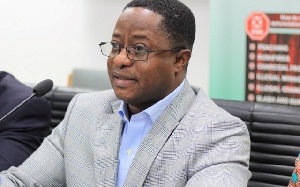 Energy Minister, John Peter Amewu
Energy Minister, John Peter Amewu
The Energy Minister, John Peter Amewu, has indicated that Ghana has paid over $150 million out of the $230 million it owes the West African Gas Pipeline Company (WAPCo) through the Energy Sector Levy Act (ESLA).
He reiterated government’s commitment to paying the rest of the money soon.
Mr. John-Peter Amewu disclosed this on the sidelines of the two-day meeting of West African Gas Pipeline Project Committee of Ministers in Accra last Friday,
The Minister appealed to the countries to abide by the workable tariff from the West African Gas Pipeline Authority (WAGPA), saying “I, therefore, urge WAPCo and all other relevant stakeholders to cooperate with us and the regulator to determine a workable tariff that will be attractive and economical for all parties, as well as sustainable over the long haul.”
He also advised WAPCo not to rush to recoup its investment but consider the original objectives of the entire project, socio-economic factors of stakeholder countries and market dynamics to ensure value for money for all stakeholders.
“The discovery of indigenous gas and its commercialisation, which did not exist at the time of the West Africa Gas Pipeline (WAGP) project was executed, must be seen by WAPCo as a strategic addition to its business model and not a threat, Mr. Amewu said.
He said the interconnections between WAGP in gas volumes and revenue must be a win-win for all stakeholders.
Mr. Amewu announced Ghana’s intention to build a petro-chemical hub in the West African sub-region to boost bi-directional flow of gas from Nigeria and Ghana to benefit the two countries.
The Managing Director of the WAPCo, Walter Perez, expressed optimism that the total debt would be settled before the end of next year.
He indicated that the settlement of the debt had opened a new chapter between Ghana and WAPCo in terms of supply and business and contributed significantly to efficiency of the company.
According to him, the meeting on tariffs would be a win-win situation for all participating countries.
WAPCo, in June 2016, cut supply of gas to Ghana due to the failure of government to pay the debt which worsened the energy crisis in the country.